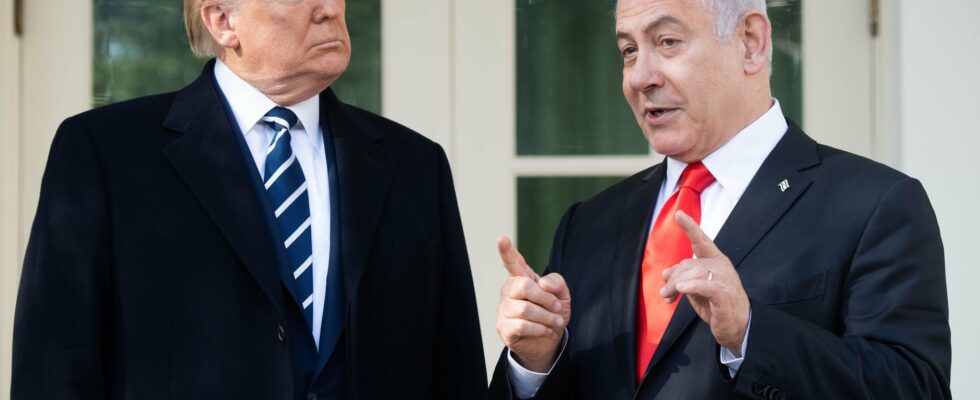The election of Donald Trump was applauded by the Netanyahu government and its supporters. However, if the first has (become) very favorable to Israel, in particular since the first of his three presidential campaigns, it is firstly because of the ever-increasing electoral, political and financial weight of evangelicals in the United States ( 40 million people in 1993, 98 million thirty years later, including the former vice-president or the current president of the Republican group in the House of Representatives), then due to the meteoric rise in economic and technological power of the ‘State Jewish for two decades. Some add the place of his son-in-law Jared Kushner, but without tangible proof that this constitutes a primordial explanatory variable. However, before his first term, it was in Saudi Arabia, the United Arab Emirates and other Gulf petromonarchies that businessman Donald Trump had invested, absolutely not in Israel!
Furthermore, what did its symbolic gestures such as the transfer of (the plaque of) the American embassy from Tel Aviv to Jerusalem, and the recognition of sovereignty over the Golan Heights, cost the United States in concrete terms? Nothing. What did the 2020 Abraham Accords between Israel and four Arab states cost Washington? It was certainly a great diplomatic and economic gift for the Jewish state – especially since these agreements are being maintained despite the long and destructive war against Hamas and Hezbollah – but also a real plus for the American military industry, with the sale of entire squadrons of very expensive fighter-bombers to Abu Dhabi and Rabat in particular. What did the “deal of the century” cost the United States, this peace plan led and presented by Jared Kushner in January 2020, and very favorable to Israel by granting it large parts of the West Bank? Its rejection by the Arab chancelleries (the Emirates excepted) and the lack of support from almost all those in the rest of the world cost nothing to a Trump administration whose allied Arab regimes were asking for help and assistance against Iran.
Iran, the only serious Middle Eastern issue for Trump
That leaves Iran, the only serious Middle Eastern issue in the eyes of the new president. On July 14, 2015, under the second term of Barack Obama, the 5 + 1 (five permanent members of the Security Council + Germany) concluded a nuclear agreement with Tehran under which the Islamic Republic undertook to suspend the essential part of its uranium enrichment process for ten years, subject to the progressive cancellation of the sanction trains.
On reaching the White House, Donald Trump, on the contrary, strengthened sanctions against Iran and, ultimately, suspended American participation in the agreement, hindering the maintenance of the other signatories. Joe Biden tried in vain to reactivate the multiparty agreement. With the hardening of the mullahs’ regime, its ferocious repression of women, and especially the activation of the Lebanese Hezbollah subservient against Israel the day after the October 7 massacre, Donald Trump recalled that he would hit Iran hard once he returned to power. . In fact, since his election, he has appointed figures very close to Israel and hostile to Iran.
How far will he support Israel?
Will it let its Israeli ally bomb enemy nuclear infrastructures while protecting it from ballistic retaliation? Maybe. But this would in no case be done without the fate of Saudi Arabia and the Emirates being heavily impacted by a real Israeli-Iranian war, and with it that of Gulf oil. And therefore full gas at the pump in Ohio.
To what extent will Donald Trump support Israel, in other words at what cost? Because if unpredictability and dilettantism characterized his first mandate, we too often omit his propensity to reject any contribution from the American taxpayer to friends and allies, starting with Europe and Taiwan, and any sending of troops. Certainly, Israel benefits from a particular empathy on the part of a large majority of American citizens (contrary to what many of its detractors hoped and believed they could demonstrate during the November 5 election), and from this new administration to be born in January in particular; However, if support for the Jewish state became too costly, a clearly isolationist Donald Trump in search of savings would risk becoming less profligate.
.
